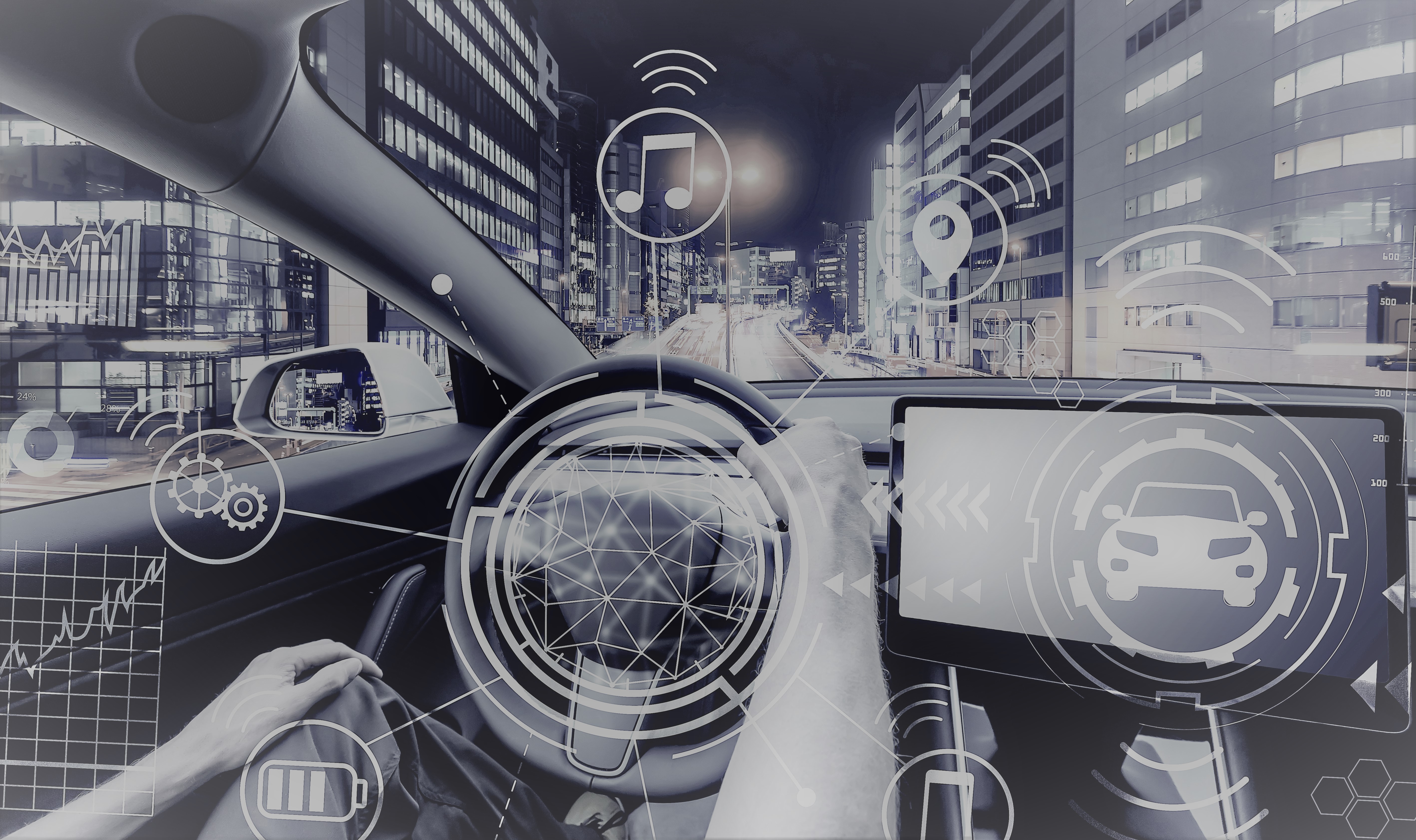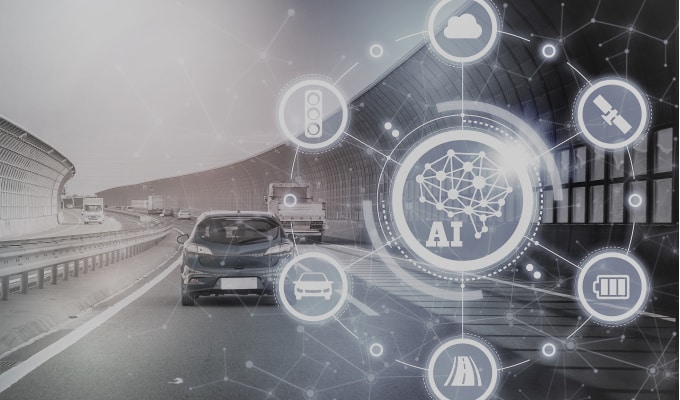This blog post was originally published at Digica’s website. It is reprinted here with the permission of Digica.
The automotive industry has undergone a profound transformation over the years, with technological advancements driving innovation at an unprecedented pace.
One of the most influential technologies shaping the future of vehicles is Artificial Intelligence.
AI’s integration into the automotive sector is revolutionizing everything from vehicle design and manufacturing to safety, efficiency and the overall driving experience.
Autonomous Driving and Safety Enhancement

One of the most significant ways that AI is impacting the automotive industry is through the development of autonomous vehicles. AI-powered sensors, cameras, Lidar and radar systems enable vehicles to perceive and understand their surroundings, making autonomous driving a reality. These technologies work in tandem to navigate, make real-time decisions and adapt to changing road conditions.
AI’s role in improving vehicle safety is undeniable. Advanced Driver Assistance Systems (ADAS) powered by AI algorithms can detect and react to potential hazards faster than human drivers. Emergency braking, lane departure warnings, adaptive cruise control and parking assistance are just a few examples of AI-driven features enhancing road safety and preventing accidents.
Advanced Driver Assistance Systems (ADAS) must be able to handle even the most unlikely scenarios (animals running onto the road, upside-down objects, etc.). It’s impossible to acquire the necessary data for this type of events, so a way to address the unpredictable was required.
For one of our customers at Digica, we created a method for training ADAS detectors and classifiers on thermal, synthetically generated data (images and videos). Our objective was to implement this method as a pipeline that joins the client’s infrastructure, keeping the inference time for detectors and classifiers the same. As a result, the implementation grew more robust against other “crazy” scenarios.
Predictive Maintenance and Efficiency
AI-driven predictive maintenance is transforming the way that vehicles are serviced. By analyzing vast amounts of data from sensors and vehicle systems, AI can predict when components are likely to fail, allowing for proactive maintenance. This not only reduces downtime but also prevents costly breakdowns and extends the lifespan of vehicles.
AI’s impact on efficiency extends beyond maintenance. Smart route planning and traffic prediction algorithms optimize fuel consumption, reduce emissions and save time for both individual drivers and fleets.
For fleet management companies, flat or worn tyres can incur costs while vehicles are off the road. The ability to predict wear and tear in advance can therefore reduce operational expenditure.
One of the largest tyre manufacturers in the world asked Digica to devise a method for automatic tyre wear assessment, based exclusively on the sounds produced by rotating wheels. In the Proof of Concept phase of this project, Digica proved that, under laboratory conditions, our model was able to accurately determine the type of wear in 93% of cases by using just one microphone to listen to a turning tyre.
Customer Experience and Personalization
AI-powered infotainment systems and virtual assistants are reshaping the in-car experience. Natural language processing enables drivers and passengers to interact with their vehicles using voice commands, making navigation, entertainment and communication more intuitive and safe. Moreover, AI facilitates personalized driving experiences. By analyzing driver behaviour and preferences, AI can adjust vehicle settings, such as seat position, climate control and entertainment options.
Large Language Models (LLM) can be used to build a recommendation engine that suggests particular car models, based on the customer’s preferences and needs. Customers can input their requirements, such as budget, preferred body type, fuel efficiency and desired features, and the LLM can generate personalized recommendations. The same tool can provide a detailed comparison of specifications, features, pros, and cons as an aid in decision-making.
LLM can also provide a comprehensive FAQ section to address common customer questions and concerns. Additionally, the LLM can assist customers in troubleshooting issues with their vehicles by providing step-by-step guidance.
Manufacturing and Supply Chain Optimization
AI is revolutionizing the manufacturing process, making it more efficient and adaptable. Collaborative robots, or cobots, work alongside human workers to perform tasks that require precision and repetition, leading to higher quality and increased productivity. AI-driven analytics also optimize production schedules, reducing waste and ensuring timely delivery. Furthermore, AI enhances supply chain management by predicting demand, optimizing inventory, and streamlining logistics. This leads to better cost control, reduced lead times, and improved overall operational efficiency. It is also possible to reduce the number of defective parts that reach the assembly stage.
One of Digica customers, a leading producer of medical imaging silicon, wanted to identify defective regions (slices) in silicon wafers and predict which regions were defective after manufacture. We trained a model to identify and aggregate data from two sources: scans of existing wafers and test data. We used OpenCV and Scikit-Image to preprocess the input image and then applied the XGBoost algorithm to the test data sources to indicate the probability of slice failure. Finally, we deployed a model pipeline in the client’s production process. Results were very satisfying as our model accurately identified all slices in the test data provided and also identified some slices which were deliberately hidden from us.
Environmental Impact and Sustainability

As the automotive industry faces increasing pressure to reduce its environmental footprint, AI plays a crucial role in achieving sustainability goals. Electric and hybrid vehicles benefit from AI-powered battery management systems, which optimize charging, extend battery life, and improve energy efficiency.
Additionally, AI aids in designing aerodynamic and lightweight vehicles, thereby reducing energy consumption and emissions. Advanced simulations and modelling tools powered by AI can enable manufacturers to iterate and refine designs more rapidly, accelerating the development of environmentally-friendly vehicles.
Accident Prevention and Driver Monitoring
As AI becomes more accessible to car manufacturers, many vehicle companies have prioritized safety and accident prevention. By using a standard RGB camera, it is possible to measure heart rate, hand and head tracking, gaze understanding, emotional and micro-expression tracking.
For our customer, Digica was tasked with creating a platform that allows for remote human monitoring. We came up with a solution which is able to track human body indicators of mental and physical state following 6 different indicators. Moreover, it is designed to be able to extend to more indicators such as blinking, audio, transcription and others.
Conclusion
Artificial Intelligence is undeniably reshaping the automotive industry in profound ways. From autonomous driving and safety enhancements to predictive maintenance, customer personalization, manufacturing optimization and sustainability initiatives, AI is accelerating innovation across the entire automotive ecosystem.
As AI continues to evolve, its impact on the automotive industry will only grow stronger. Manufacturers, suppliers, and stakeholders must embrace this technological revolution to drive forward the future of mobility, making transportation safer, more efficient and environmentally responsible for generations to come.
Anna Paluszkiewicz
Marketing Manager, Digica


